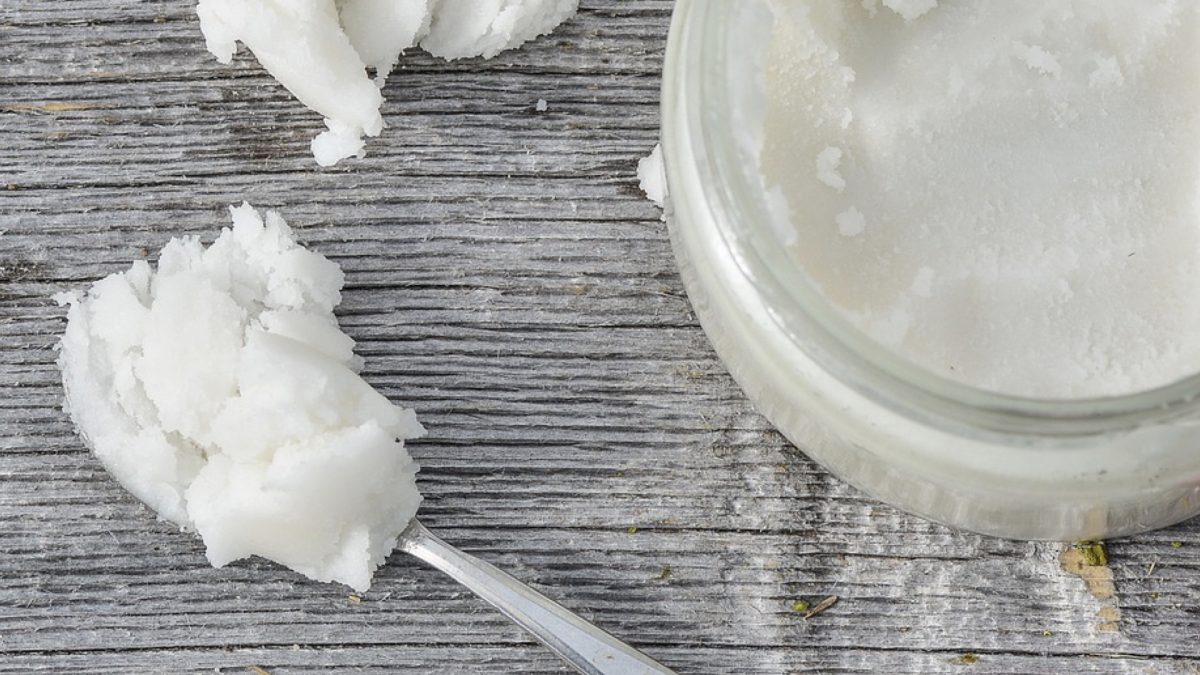In my previous articles on oil pulling, I discussed how the ancient practice may be no more effective than swishing with plain water for plaque and gingivitis, doesn’t whiten your teeth, and may even worsen dental erosion.
What about oil pulling to treat tooth sensitivity? About a quarter of people have sensitive teeth, for example, experiencing aching sensations when drinking ice water. So researchers split people into three groups—oil pulling, desensitizing toothpaste, and placebo just rinsing with saltwater—and then blasted the subjects’ teeth with cold air. As you can see at 0:44 in my video The Risks of Oil Pulling, the placebo didn’t help much; the before-and-after sensitivity scores were the same for nine out ten in the placebo group. The desensitizing toothpaste, however, seemed to help most of the patients, as did the oil pulling. Okay, so there is some benefit to oil pulling. If you have sensitive teeth, why not give it a try? Unless, of course, there are some downsides or risks associated with oil pulling.
Typically, the only concerns you see expressed are for clogging your sink drain, but the reason it’s warned against in young children is fear of aspiration. The kids could accidentally choke on the oil, causing some to go down the wrong pipe into their lungs. Actually, this could happen at any age, but is this just a theoretical concern? No. Attributed to oil pulling are cases of lipoid pneumonia, which is when you get an oily substance stuck down in your lungs.
This was first described in 1925, when it was customary to use substances like mentholated Vaseline in the nostrils of kids—until they died of pneumonia. On autopsy, areas of their lungs were found to be clogged with an oily fluid. Glad we don’t use mentholated Vaseline anymore? But we do. That’s what Vicks VapoRub is, and if you stick it in your nostrils, you can end up filling up part of your lungs with it, as you can see at 2:18 in my video. Vaseline liquefies at body temperature and creeps down into your lungs as you sleep, which is why you should never put it in your nose before bedtime. People need to be aware of this. It’s not just Vaseline, though—anything oily or greasy can do it. For instance, evidently, an “intranasal butter application” was an old folk remedy given to kids with a stuffy nose. Unfortunately, the kids could end up with pneumonia or a stuffy lung.
The same thing can happen with olive oil. There was even a case of a woman who contracted lipid pneumonia because she mistakenly thought it was a good idea to put baby oil in her nose when her nostrils were dry. Less common causes include inhaling too much vaporized candle wax, after spending most of your time in a shrine surrounded by burning candles, for instance. Lipoid pneumonia isn’t nicknamed “fire-eater’s lung” for nothing, as performers place themselves at risk for aspirating tiki torch oil in their act. Thankfully, one really uncommon cause is self-injection with oil. Why would anyone do that? To “increase the size of [their] genitals,” of course, until they accidentally hit a vein and squirt oil into their bloodstream.
As bad as that is, I’m more concerned about cases like this: A woman was admitted to the hospital for pneumonia four times in just six months. “During the fourth admission, [her doctors] meticulously inquired about every possible cause of her recurrent pneumonia, and she revealed that she had been oil pulling 2 weeks prior to her first admission.” Then, after she was discharged from the hospital, “she returned to the practice even more rigorously to remove any possible toxic effects of medicines she had taken during his hospitalization.” Her attempt to “detoxify” from all the drugs they had given her led to three more hospital admissions. Her doctors told her to stop the oil pulling, and no more pneumonia.
That’s one of the reasons the American Dental Association recommends against the practice. In fact, you may remember the tooth-whitening experiment I discussed in a previous article. The researchers used extracted teeth instead of actual real-life human subjects. Why? They stated that “it was not ethically sound to conduct a human trial of…this [oil pulling] practice with the knowledge that there was a chance of inducing lipoid pneumonia in study volunteers.”
This article discusses the final video in my four-part series on oil pulling. For the first three, see:
- Does Oil Pulling Help with Cancer?
- Oil Pulling Benefits for Plaque and Gingivitis
- Oil Pulling for Teeth Whitening and Bad Breath Tested
Speaking of toothpaste, have you ever wondered about that ingredient SLS? Check out my videos Is Sodium Lauryl Sulfate Safe? and Is CAPD in SLS-Free Toothpaste Any Better?.
For more on dental health, see:
- How to Stop Tooth Decay
- Should You Floss Before or After You Brush?
- Best Food for Periodontal Disease and Gingivitis
- How to Treat Periodontitis with Diet
- Best Foods for Halitosis and Gingivitis
In health,
Michael Greger, M.D.
PS: If you haven’t yet, you can subscribe to my free videos here and watch my live presentations:
- 2019: Evidence-Based Weight Loss
- 2016: How Not To Die: The Role of Diet in Preventing, Arresting, and Reversing Our Top 15 Killers
- 2015: Food as Medicine: Preventing and Treating the Most Dreaded Diseases with Diet
- 2014: From Table to Able: Combating Disabling Diseases with Food
- 2013: More Than an Apple a Day
- 2012: Uprooting the Leading Causes of Death
